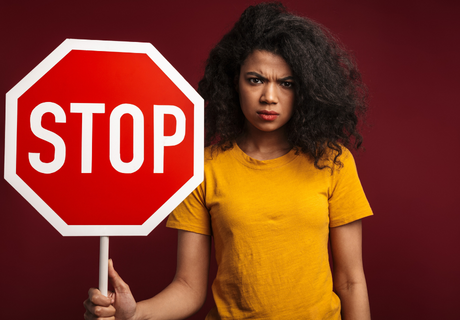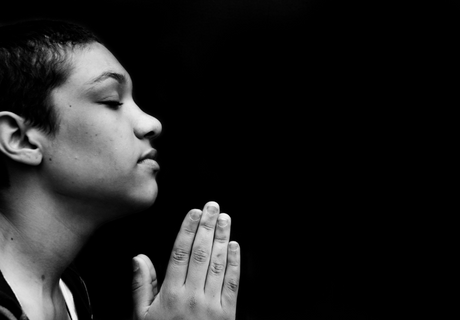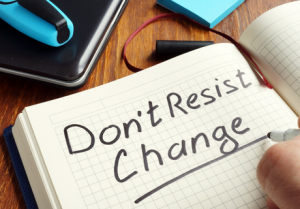I became a Christian in the late 70s, attracted by the love and grace of God that I saw in some Christian people I met while hitchhiking around Australia. But I was soon caught up in the buzz around the book of Revelation and Bible prophecy. The rapture and the end of the world were going to happen between 1983 and 1988, except they didn’t.
Then there was the satanic panic of the 80s and 90s, with over 12,000 unsubstantiated Satanic ritual abuse cases. The Left Behind series of books and films fed a generation of Christians an erroneous view of Revelation. The last few years, especially since the pandemic, have witnessed the rise of QAnon and a supposed Deep State cabal of Satanic Paedophiles manipulating the planet’s governments.
Wising Up
It has taken me many years to realise that some Christians lurch from one false prediction or plot to the next with minimal reflection. There appears to be little to no awareness that such-and-such prophecy was incorrect. They move ahead while stirring up more fear and outrage with whatever the latest conspiracy flavour happens to be.
A steady diet of certain media outlets feeds the fear and outrage. It saddens me to see Christian leaders and others go down the rabbit hole. I’ve watched it for over forty years. It’s unbiblical and un-Christlike. Jesus did not come to build a fearful, angry church; he came to create a victorious one. Christians, please wise up!
On THIS Rock
Matthew records a fascinating discussion between Jesus and his disciples in which he asks them what the public is saying about his identity. All the answers were wrong, but Peter was spot on, “You are the Messiah, the Son of the living God.” Jesus replied, “Blessed are you, Simon son of Jonah, for this was not revealed to you by flesh and blood, but by my Father in heaven. And I tell you that you are Peter, and on this rock, I will build my church, and the gates of Hades will not overcome it.”
Jesus is using a play on words. Peter (Gk. Petros) means a small stone or pebble found along a pathway. A stone that someone could throw. Rock (Gk. Petra) refers to a vast mass of solid rock rising from the earth, such as a mountain or precipice. Jesus’ words could be translated as follows: I tell you that you are a little pebble, and on this gigantic rock, I will build my church, and the gates of Hades will not overcome it.
The Gates of Hades
Hades was the god who presided over the underworld, called the house of Hades. It was believed to be the place where people went when they died. The New Testament adopts this name for the realm of the dead and pictures it as a large city with its gates representing its power.
In the first century, cities were fortified with walls and gates. On attack, the gates would be closed. The enemy would target the gates as the place of greatest vulnerability. Through the gates, the Army would seek to destroy the invading force.
A Little History
The conversation between Jesus, Peter, and the other disciples occurs in Caesarea Philippi, a mountainous area close to Mount Hermon, the tallest mountain in Israel. The area was known as Bashan in the Old Testament and had a bad reputation. Sihon and Og, two kings of Bashan, had ties to the ancient tribes of Rephaim and Anakim (Deuteronomy 2:10–12; Joshua 12:1–5). Their kingdom’s principal cities were Ashtaroth and Edrei.
The ancients regarded the Rephaim as the spirits of slain warrior kings. Additionally, they believed that the twin cities were Sheol’s gates, the entrance to Hades. Jeroboam constructed a pagan religious complex in Dan, just south of Mount Hermon, where the Israelites worshipped Baal rather than Yahweh.
The Sons of God
People in Jesus’ time, including his disciples, perceived Bashan as terrifying and awful. Jewish tradition holds that the sons of God descended from heaven on Mount Hermon, ultimately corrupting humans by their offspring with human women (see Gen. 6:1-4).
These offspring were Nephilim (giants) and were considered ancestors of the Anakim and the Rephaim (Numbers 13:30–33). According to Enoch’s book, these giants’ spirits were evil spirits sent to dwell on the earth (1 Enoch 15:1–12).
To make the region even spookier, Caesarea Philippi had been dedicated to Zeus; a pagan god people worshipped at a religious centre built at the foot of Mount Hermon. Aside from the brief interlude during the time of Joshua through Solomon, the gates of hell were continually open for business.
The Rock and The Gates
The rock Jesus referred to in this passage was neither Peter nor himself. Jesus suggested the rock where they stood at the foot of Mount Hermon, the demonic headquarters of the Old Testament and the first-century world.
The Church that Jesus envisions in these verses is victorious. He was declaring war on Satan, sin, and death, the things he defeated by his death and resurrection. What Jesus is teaching in this discussion with his disciples is this:
Think of the worst or most challenging place to establish a church, and that’s where I’ll build mine. Find the hub of satanic activity, false religion, and superstition. I will build my church atop the gates of hell and bury them.
And that’s why I challenge the voices of fear and outrage from some quarters of the Christian church. And, if you’re caught up in these voices, I challenge you to stop feeding yourself defeatist drivel. Jesus built his church on a massive rock, saying the gates of Hades would not overcome it. Was he telling the truth? Jesus IS the Truth.











 Notice that the word is traditionalism, not tradition.
Notice that the word is traditionalism, not tradition.  Over the centuries, Christian conservatism has rallied against women’s rights, especially their right to vote. It’s been against mixed-race marriage, desegregation of schools, divorce and remarriage, and these days anything to do with LGBTIQ+ people.
Over the centuries, Christian conservatism has rallied against women’s rights, especially their right to vote. It’s been against mixed-race marriage, desegregation of schools, divorce and remarriage, and these days anything to do with LGBTIQ+ people.


